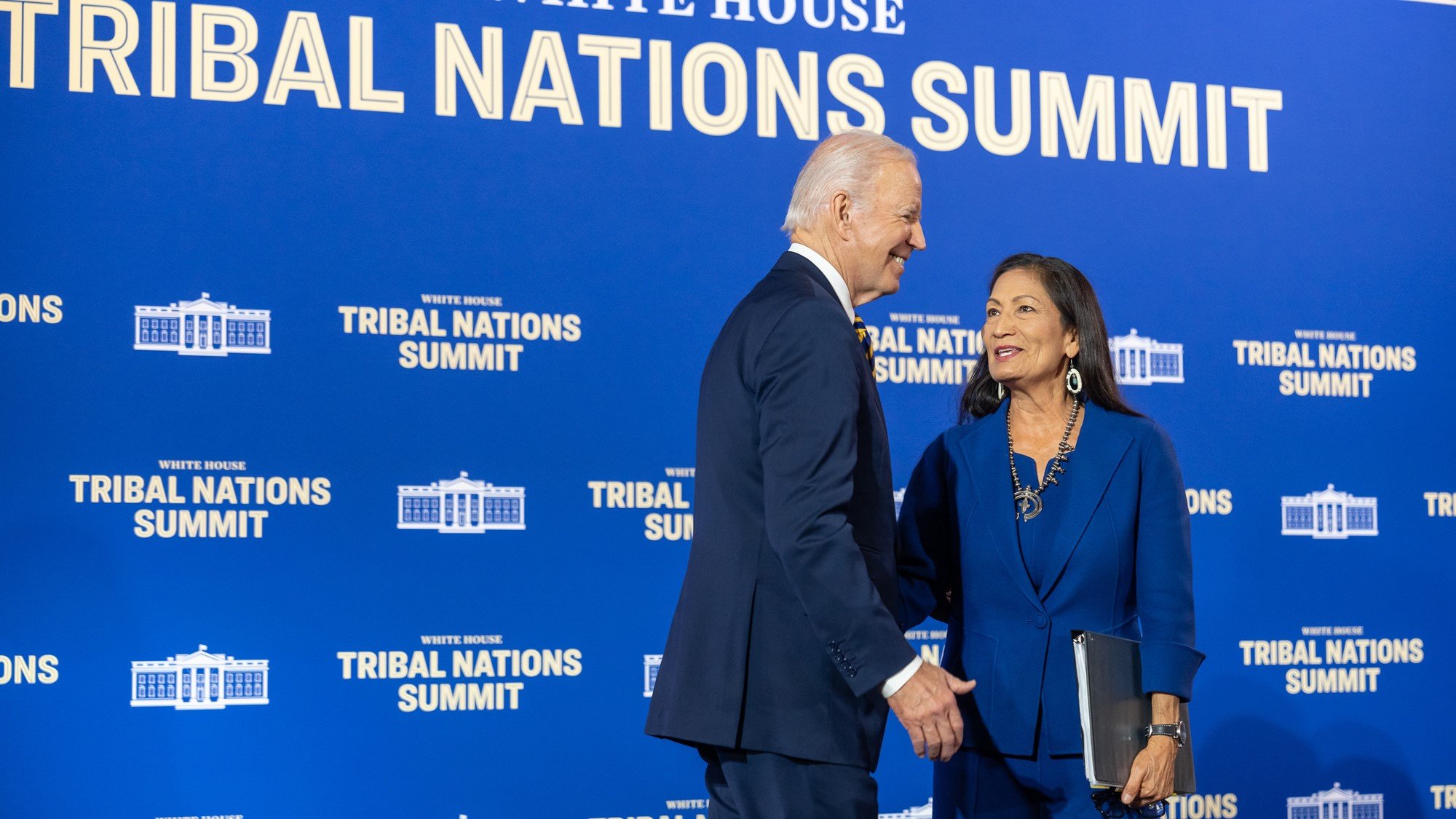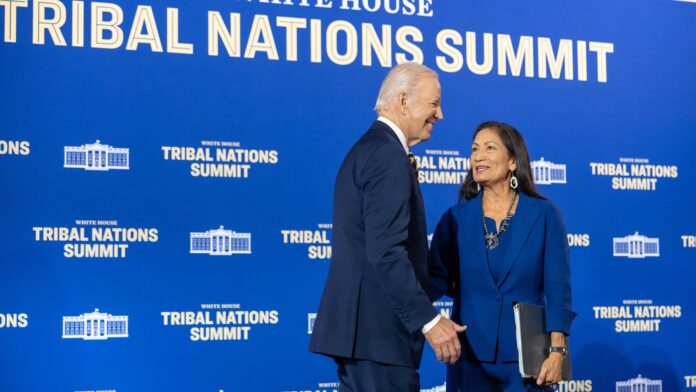
In a highly contentious move, the Biden administration is on the verge of giving the green light to the Coquille Indian Tribe’s audacious plan to construct a second casino beyond its traditional territory in Medford, Oregon.
Anticipation looms as the Department of the Interior’s Bureau of Indian Affairs (BIA) is expected to release its final environmental impact statement (EIS) imminently, a decision that has elicited fervent opposition from various tribes and lawmakers in the Pacific Northwest.
The Coquille Tribe’s proposal, known as the Cedars at Bear Creek, has been under scrutiny for nearly a decade. Initially introduced under an Obama administration policy that eased gaming and trust-land acquisition restrictions, critics fear the Biden administration may be signaling a continuation of this approach.
Voices of dissent, including several regional tribes, bipartisan lawmakers, and tribes nationwide, have collectively raised concerns about the potential ramifications of approving the Coquille Tribe’s off-reservation casino endeavor.
The Tribal Alliance of Sovereign Indian Nations, representing 13 tribes in California, decried the move as a direct threat to the sovereign rights of tribal governments to operate gaming on their lands.
Similar sentiments were echoed by the California Nations Indian Gaming Association, an organization representing dozens of federally-recognized tribal governments.
The fear is that the approval of the Cedars at Bear Creek casino could jeopardize the “sovereign rights” of member tribes and set a precedent for unbridled establishment of gaming venues near tribal lands.
The heart of the matter lies in the impact on neighboring tribes, as opponents argue that the Coquille’s casino could infringe upon their rights, lower their gaming revenue, and trigger a wave of similar proposals across the region.
Democratic Senators Ron Wyden and Jeff Merkley of Oregon, along with Senator Alex Padilla of California, have staunchly opposed the casino, emphasizing potential negative consequences for tribes in both states.
A coalition of tribes led by the Cow Creek Band of Umpqua Tribe of Indians, whose territory is in proximity to the proposed casino site, has appealed to the federal government to reject the plan.
Their concerns revolve around the significant revenue decrease projected for their casino if the Cedars at Bear Creek project moves forward.
Michael Rondeau, CEO of Cow Creek, highlighted the issue of unequal opportunities, pointing out that the Coquille Tribe’s casino would be 150 miles from their reservation, emphasizing a lack of similar privileges for other tribes.
“This will open the floodgates for additional casinos by this one Tribe,” warned Rondeau.
Experts in Native American history, such as Stephen Dow Beckham of Oregon State University, have criticized the proposal, labeling it as “wrongheaded” and asserting that it could have deleterious impacts on neighboring tribes’ services.
In contrast, the BIA’s draft EIS acknowledges the Coquille Tribe’s financial struggles resulting from changing demographics, economic stagnation, and increasing costs. The proposed casino, if approved, aims to divert revenue to sustain existing tribal programs and fund new initiatives, supporting the tribe’s “self-determination and self-sufficiency,” according to the BIA.
Once the BIA issues its final EIS, a subsequent public comment period will ensue before the agency makes its final decision. Despite numerous requests, neither the BIA nor the Coquille Tribe has provided any comments on the matter.














